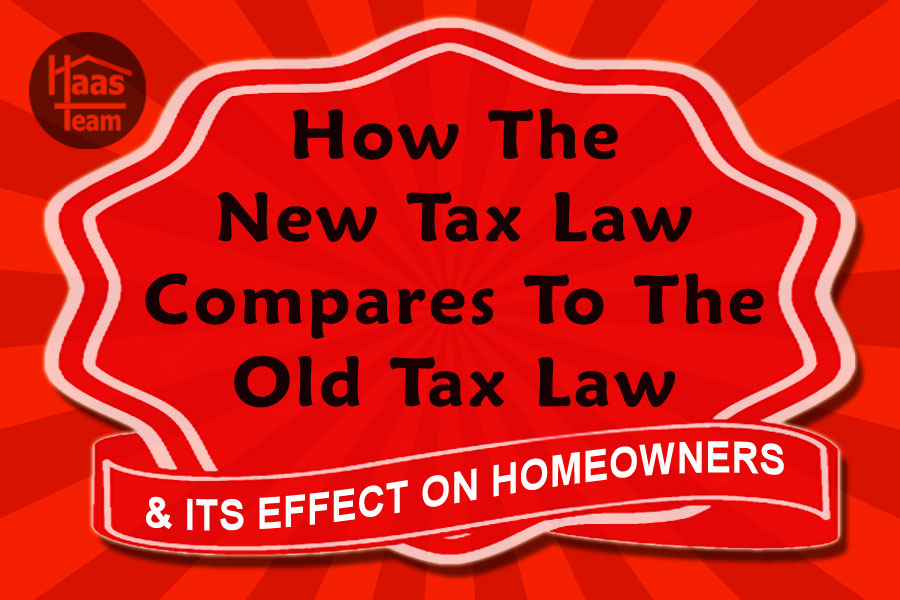How The New Tax Law Compares To The Old Tax Law
Monday, January 8, 2018
Good Monday Morning!
 Over the past couple of weeks I have had numerous questions about the new tax laws. There are some changes and the following information will give you some ideas on what those changes look like.
Over the past couple of weeks I have had numerous questions about the new tax laws. There are some changes and the following information will give you some ideas on what those changes look like.
Under the new tax law, homeowners will have decisions to make in 2018, due to reductions or elimination of certain deductions under the new tax law.
| Real Estate: How The New Tax Law Compares to the Old Tax Law |
| Measure | Old Tax Law | New Tax Law |
| Mortgage Interest Deduction | Could deduct interest on up to $1 million in mortgages on primary & secondary residences |
Can deduct interest on up to $750,000 in mortgages on primary & secondary residences |
| State and Local income, sales & Property Taxes | Can be deducted from federal income taxes | Caps Federal income tax deduction at no more than $10,000 for total of all local state income, property and sales taxes |
| Interest on home equity debt (HELOCs) | Home equity debt interest is deductible up to $100,000 if not disallowed by the AMT |
Cannot deduct interest on home equity debt-new or existing on personal residence unless improving the residence* Equity debt on the personal residence is deductible if it is used to finance or improve a rental property |
| Capital Gains on Home Sales | Can exclude up to $500,000 of gain for joint filers or $250,000 of gain for single filers from capital gains when selling a primary home, as long as the homeowner has lived in the residence for 2 of the past 5 years |
No change |
| Source: Factcheck.org |
| $937,500 in purchase mortgages is the Max deduction for Mortgage Interest with 20% down. |
| The mortgage interest deduction is now limited to mortgages totaling up to $750,000 for primary and secondary homes. This means that homebuyers with a 20% down payment can only deduct 100% of the interest from their mortgages if their purchase price total is less than $937,500. |
| Property Tax Impacts in High Tax States |
| State income tax, sales tax and property tax deductions (SALT) are now capped at $10,000 total. This is a significant hit for many high tax state residents in high cost areas. |
| Tax Plan Calculator: Estimate Your Tax Liability |
| What does this mean for your bottom line? The Wall Street Journal’s tax plan calculator analyzes the impact of the biggest factors in the bill, so you can estimate your tax liability for 2018 through 2027. Click here for The Wall Street Journal Tax Plan Calculator. |
| Common Scenarios: How the Tax Bill Will Affect 8 Families |
Bloomberg shows how taxes owed on wage and pass-through income (from a business you own) will change in 2018. These scenarios may remind you of someone you know:
|
| Tax Workaround for Vacation Homes |
| Owners and buyers of second homes can potentially turn their vacation homes into an investment property by setting up a limited liability company. That allows them to write off interest and upkeep, while using the property part of the year for themselves, according to The Denver Post. Consult a tax professional for help navigating the new tax rules and how to best structure this business. |
|
Have An Awesome Week! THIS WEEK'S HOT HOME LISTING! |
Horse property only 5 mins from town! Nearly 6 level acres, backs up to canal & great for trail riding along Amazon. Wonderfully updated home with 2-car garage. 1 bedroom guest house w/ carport has income producing potential. 2 barns w/ 11 stalls, i...
|
Add Comment







